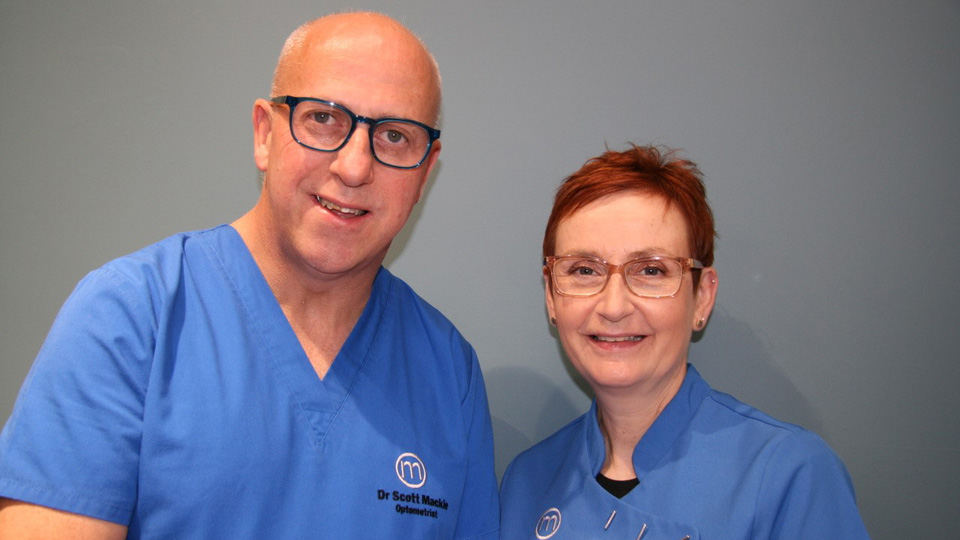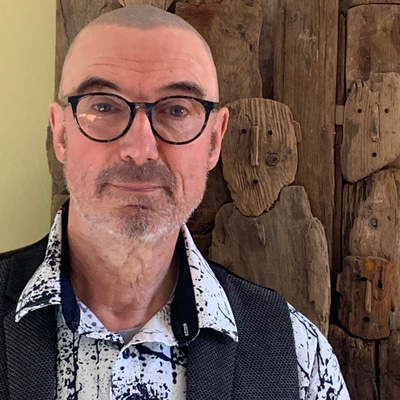- OT
- Life in practice
- Practitioner stories
- “We can all collectively make a difference and be part of this growing movement for change”
Practice team digest
“We can all collectively make a difference and be part of this growing movement for change”
Four optometrists on why taking action for a sustainable future is the responsibility of the whole practice team

19 February 2024
Dr Scott Mackie, senior independent prescribing (IP) optometrist and director at Mackie Opticians, Hakim Group independent practices in Bothwell and Lesmahagow, Scotland

Sustainability is now one of our standard operating procedures in the practice. It is so important that we – team members, patients and suppliers – all contribute to reducing our carbon footprint and in a small but important way help save our planet for future generations.
This is more pertinent than ever with the news that the 1.5 degree limit [on average surface temperature increases compared to pre-industrial levels] has been exceeded and that Government in the UK, both currently in power and in opposition, has reneged on promises made after COP26.
The practice team has contributed to our sustainability mission by discussing ideas and changing processes. They all have the same ethos of helping others, and this is a holistic approach that goes beyond dealing directly with our patients’ everyday requirements. They understand that being sustainable is everyone’s responsibility. At Mackie Opticians we are on the sustainability journey to protect our planet, our people and our communities by reducing, reusing or recycling.
Our challenge has been to understand the terminology used and what it really means to reduce our carbon footprint. We did this by attending conferences such as Dynamic Earth, in Edinburgh, and talking to companies that specialise in this area, such as Practice Building.
15 sustainability wins: how Dr Scott Mackie reduces his practice’s carbon footprint
- Using eco-conscious frame materials, such as those from Bird Eyewear
- Buying biodegradable case and cloth materials from Caseco
- Refillable lens sprays
- Reducing energy consumption via LED lighting, smart meters, solar panels, and insulation and heat source pumps
- Recycling contact lens packaging
- Recycling spectacles (Bird also has recycling boxes available for practices)
- Offering patients multiple appointments, services or partners, for example, encouraging them to use a pharmacist on the same day
- Recycling waste
- Offering reusable water bottles to staff, to reduce use of single use plastic
- Using Programme for the Endorsement of Forest Certification-accredited, recycled paper
- Buying bamboo-based toilet paper
- Planting trees to offset carbon footprint
- Using B-Corp certified companies to ensure that there is no green-washing
- Reducing supplier deliveries by increasing stock
- Only using companies that use sea freight rather than air freight.
In summary, don’t wait until tomorrow, start your sustainable journey today. You will feel better for it and your staff and patients will appreciate your efforts. We can all collectively make a difference and be part of this growing movement for change.
We are on the sustainability journey to protect our planet, our people and our communities
Bethan Roderick, optometrist and director at Canton Optical, Cardiff
Sustainability is second only to patient care as far as our practice is concerned.
In 2022, OT spoke to Bethan about how the profession can work together to create a sustainable future. Read Sink or swim here.
The biggest challenge is making sure everyone understands our policies. For example, we recently reviewed what can be recycled and how, as some staff members were unclear about this and mistakes were being made.
Most of our policies are surprisingly easy to implement. Probably the easiest thing to do immediately is to have separate bins in every work area – reception and the testing rooms, for example. This means waste gets sorted at source, so no one is having to separate it later. It also provides an obvious and visual reminder that waste needs to be sorted into different streams.
We have recently appointed a green officer for each practice. Our green officer has the responsibility to make sure our policies are being implemented correctly – for example, it is their responsibility to make sure all plug sockets are turned off at the end of the day. They also act as a point of contact for staff members who may have questions surrounding our green policies.
Dr Peter Frampton, IP optometrist and owner of Aaron Optometrists, a Hakim Group independent practice, Northumberland

As of February 2024, planet earth exceeded the 1.5°C temperature goal set out in the Paris Agreement. At every level of local society, the call to action is evident. The Local Government Association states that climate change is one of the biggest threats we face, and that 80% of people are concerned about it. The urgency has prompted over 300 councils to declare climate emergencies.
This is where success lies, at the local level – a level where individuals and local businesses can, and do, have an impact. Above all, recognise and embrace this fact. You are not alone and your efforts, if we all commit, will not be in vain. You just have to start.
Quick wins are much easier than a few years ago. Suppliers across most industries recognise and have committed to the environmental challenges. Consider contact lens recycling scheme. No government legislation forced this act of environmental philanthropy.
Ethically sourced and produced spectacle products, utilising both recycled and biodegradable raw materials, are now readily available; making the choice not to prioritise these seems myopic. Any laggards will soon comply when profit margins are affected.
Spectacles remain a plastic minefield. We use a company specialising in hard to recycle plastics. Patients are encouraged to recycle not only entire spectacles, but broken frames and lenses as well, while we use the bins for our own spectacle related plastic waste.
We have also recycled contact lenses and blister packs for many years. The uptake has been remarkable from the outset. Even during COVID-19's hard lockdown, we ensured patients knew to knock on the door and leave their lenses. Our vocabulary had to change: we sell recyclable contact lenses, not disposable ones.
Dr Peter Frampton’s tips for sustainability
- Marked recycling bins for our domestic use: cardboard, plastic bottles and cans
- We use biodegradable packing, but also re-purpose packing we receive
- We are very excited to have discovered the Cheeky Panda, which is now supplying all our tissues, kitchen roll, hand towels, toilet roll and biodegradable surface wipes. All are made from sustainable, ethically-sourced bamboo
- Ensure all our GP referrals are electronic. GPs prefer secure emails. This saves time and money, and speeds up non-emergency but urgent referrals. Safety tip: contact the surgery prior, to ensure someone will action immediately
- We have had work showers for two decades for those who cycle or run to work
- Aaron Optometrists’ electric work vehicle is brilliant – it is charged via solar panels, and we will soon add a 10kW storage battery to minimise grid use
- On transport, I will not fly domestically – I use train, bicycle and electric vehicles only, and don’t fly almost at all.
Our business is successful because we are ethical, both clinically and environmentally
Within my practice I am, and suspect will remain, the ‘sustainability champion’. As an environmentalist, I have been encouraging engagement for decades. An environmental ethos is engrained in the statement: ‘unscrupulous profit today: cost tomorrow’. This is all embracing. Our business is successful because we are ethical, both clinically and environmentally.
But effort must be made. I am proud to have a very tight team of colleagues, and I have several keen supporters of my goals, who help investigate and fulfil the ideas. But as in society, not everyone appreciates the climate imperative. It must be easier to ignore this stuff, but it is no longer supportable to consider our overindulgences now will be someone else’s problem later. It is everyone’s problem, now.
Finally, whatever you accomplish, scream about it. Don’t hide your commitment. Website, blogs, Facebook, fact sheets, Instagram – all should encourage engagement. I am currently writing a new blog introducing the Cheeky Panda. So, make it fun, make it engaging, and make it real.
Tim Morgan, optometrist and director at Buckley Eye Care and primary care green champion at Public Health Wales
In our practice, sustainability is normal. It’s that important. Just like turning up on time, infection prevention measures, clinical standards and so forth are all normal expectations, so too is sustainability. Sustainability questions are part of staff appraisals, trainings, and everyday conversations about standing operating procedures and quality improvement.
People want to do the right thing. We all, as a profession and industry, need more support to do that – but I haven’t experienced any real challenges in desire when it comes to sustainability.
Creating a sustainability plan is key. Ours wasn’t a massive tome – just two sides of A4 are enough to consider different aspects of practice behaviour and set realistic targets for changes.
We do not have a sustainability champion by design, though some staff members are naturally more innovative and passionate than others. Ultimately, we as human beings are all equally responsible for our environment, whether we are in work or not. I hope our practice enables each team member to exercise that responsibility to their fullest.
Advertisement


Comments (0)
You must be logged in to join the discussion. Log in